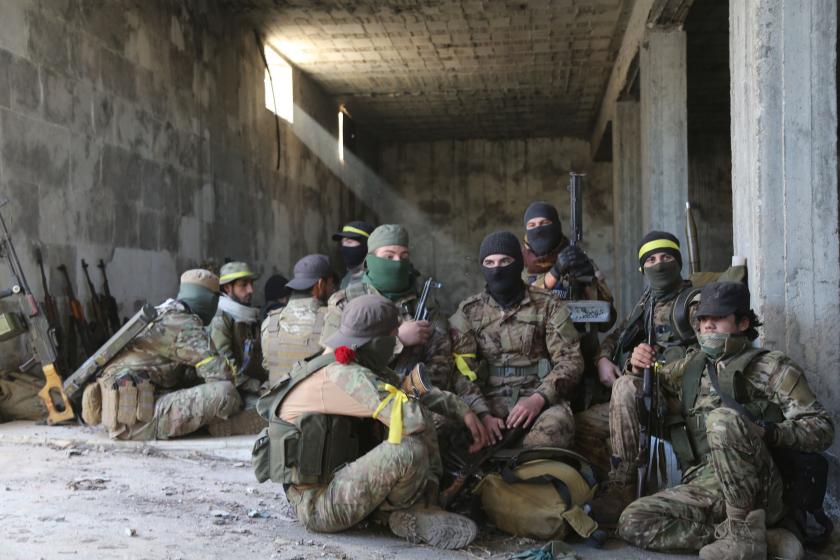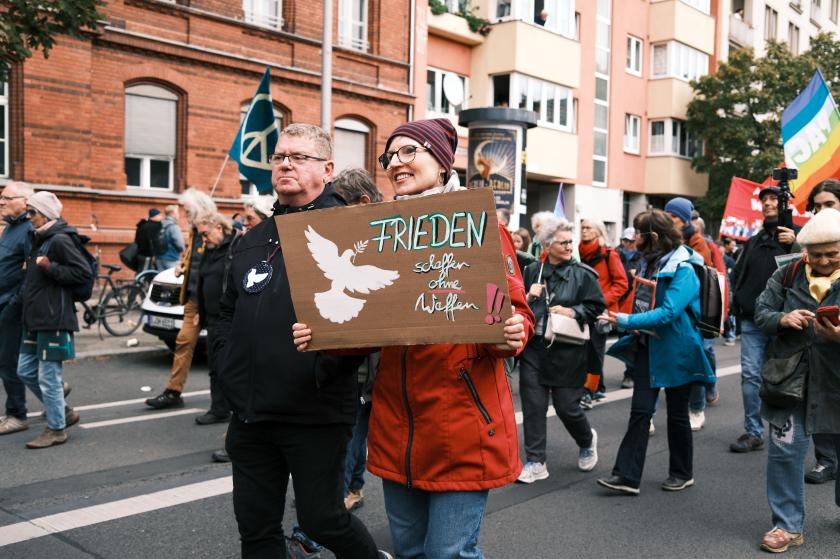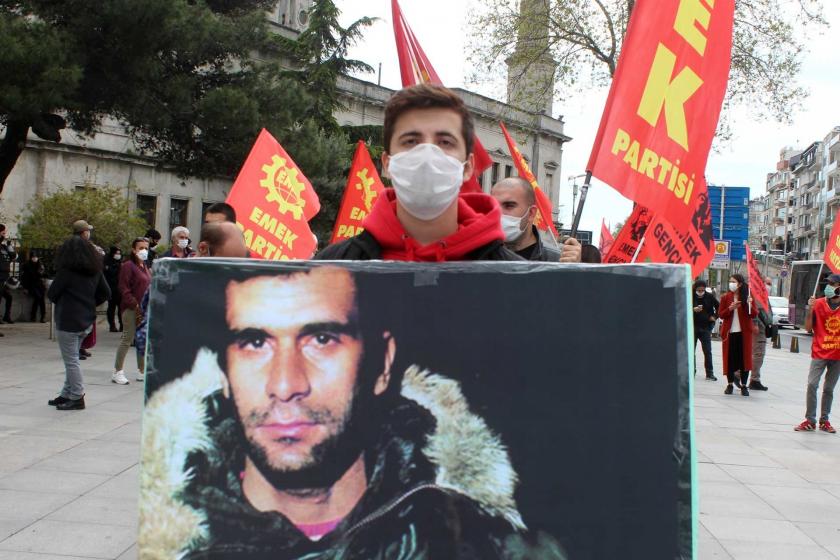Meltem AKYOL
İstanbul
It has been a full month since the first coronavirus infection was reported in Turkey. Since then, the increase in the number of cases continues to accelerate. According to experts, our country has the fastest growing number of cases, alongside the United States... So what will happen? Emrah Altindiş, an assistant professor in the Department of Biology at Boston College, who has been closely following the process in Turkey from the beginning, has published alarming figures. Altindiş pointed out that so far both the number of cases and deaths in Turkey have doubled every seven days and warns that: "When we look at today's numbers in Turkey, we are losing 1 citizen every 15 minutes. If this trend continues and quarantine is not implemented, we will lose one person in 10 minutes, then maybe in 5 minutes” he warns. “Today, we will cause to the death of some of the people we have forced to work, and we must immediately start implementing quarantines that will last 2-4 weeks in infected cities."
THE NUMBER OF CASES AND DEATHS DOUBLES IN EVERY SEVEN DAYS
According to the figures presented every evening by the Health Minister, Fahrettin Koca, the number of cases in Turkey is increasing rapidly. You expressed your concerns at the beginning of March by saying 'the tsunami is coming'. Can you interpret the whole picture with the latest data?
As of 11 April, a month has passed since the first case was detected in Turkey. So far the number of cases have exceeded 50,000 and deaths have exceeded 1,000. This is the first wave of the ‘tsunami’ I mentioned. We have already lost 1,000 people in an outbreak that we could prevent with similar measures taken by South Korea.
With today's figures, we are at a point where both the number of cases and the number of deaths doubles every seven days. Politicians around the world manipulate the numbers by comparing total number of cases to the number of deaths, which gives a very low mortality rate. However, we should examine the rates of people who became ill during the period of time they were infected and the rates of death in the same period. We call it 'case fatality rate' in English, meaning the mortality rate in closed cases. In Turkey, in every three hospitalized cases, which resulted in death or recovery, two of them were healed, while we lost one citizen. In the world this number is on the level of one loss to three recoveries. This is actually one of the main sources of concern, and we should manage the outbreak based on such alarming data.
As for the rate of increase in cases, when we compare the increase in 100 cases in Turkey with other countries around the world, unfortunately we rank second with Spain after the United States. This rise is very worrying. Our current number of cases are rising far quicker than in Italy and China, in other words, the increase is more serious. This raises our concern because we know what has happened in Italy and Spain - we follow them two to three weeks behind. In addition, more than 50,000 cases today are infected or showed symptoms two or four weeks ago and admitted to hospitals. Scientific studies estimate that only 20 percent of cases seek hospital care and with this estimate, we have at least 250,000 infected people in Turkey. So the numbers we are seeing now are only the tip of the iceberg.
EVERY 15 MINUTES WE LOSE 1 CITIZEN
If we focus specifically on Istanbul, what do the numbers tell us?
Istanbul is a city where people live very densely in small areas and there are many poor people. It is also the industrial capital of Turkey, a city where millions of workers go to work every day. Istanbul has 60 percent of cases in Turkey and that makes us scientists very nervous. Because we have an example like New York in front of us. New York is a city where people like, in Istanbul, live closely together and now it is a place where almost every two minutes a person dies. We do not know how many percentage of the citizens who have lost their lives live in Istanbul. Because there is no transparency in cases and the sharing of data. But we see cases spread throughout the city. In Izmir and Ankara, we understand that cases are spread throughout the city from the maps that were disclosed. When we look at today's numbers in Turkey, we see that we lose 1 citizen every 15 minutes. If the trend continues and quarantine is not implemented, we will lose one person in 10 minutes, then maybe in 5 minutes. We have to be very careful. We should start implementing quarantines that will last 2 to 4 weeks in infected cities immediately. One disadvantage of Istanbul is that we do not have an autonomous structure like in the United States. The governor of California, for example, said he is announcing quarantine in California 2-3 weeks ago, despite Trump. Ekrem Imamoglu and other mayors unfortunately do not have such official authority, and all decisions are between the lips of a single man.
AUTHORITARIANISM MAKES IT DIFFICULT TO MANAGE EPIDEMIC AND PROTECT PUBLIC HEALTH
Brazil, the United States, Turkey ... What do you think about the impact of authoritarian regimes on the management of controlling this epidemic?
Scientists around the world have been writing that there will be an outbreak of coronavirus for a very long time. This is not a surprise for coronavirus researchers. Scientists knew that just as we experienced SARS in 2003 and MERS in 2009, the SARS2 virus we are experiencing today would come and become an epidemic. In addition, let me make a note here: In the next 20-30 years, perhaps earlier, just like the swine flu or the bird flu, influenza viruses of other animals will mutate and infect us. In the coming years, humanity will also experience different outbreaks of influenza virus. With this apparent information we have, we need to look at what the politicians who rule the world have done in the last 30-40 years? How much have money transfers to health and science budgets decreased in the last 30-40 years? Policies implemented to make rich people richer, militarism in all countries, policies that flow billions of dollars to arms, funds transferred to banks... With all these, we can answer the question of why were we caught off guard on a global scale. Today, for example, we tell people to wash your hands, but in our world, about 1 billion people do not have access to clean water, drinking water, billions of people are not well fed, so their immune systems are weak. Especially for the last 10 years, authoritarianism has been added to these severe structural problems created by capitalism. From Bolsonaro to Trump, from Modi to Duterte, Putin to Xi Jinping we are facing many leaders who are representatives of the elites and recognize what they think as the only truth. We are experiencing this as part of this chain in the world, and the priority of these regimes is to keep their own economic structures and the interests of the elites around them intact. Therefore, they insist on some policies that prioritize the return of economic wheels rather than human health, and we will see how in the future they will make decisions that put public health at risk.
Let us look at the example of the United States: American President Trump has presented a terrible management of the epidemic. He has not understood the seriousness of the virus from the very beginning and he still does not understand. In the first weeks, he insistently wanted everyone to return to their jobs and expressed it openly. Whenever scientists put the numbers in front of him and said that 1.5-2 million American citizens would die soon if the policy of city quarantine was not implemented, only then he gave up on his insistence. Therefore, we need brave scientists, especially in the Science Board. Unfortunately, at the end of the day, these powerful single men have the power to make decisions. While the Health Minister praised the quarantine almost a month and a half ago, the city of Istanbul, the heart of Turkey, is extremely infected and he cannot impose quarantine there. His power is not enough to convince one man. Without a need for further comments, this clearly shows the effect of authoritarianism on the management of the epidemic. Unfortunately, authoritarianism also makes it difficult to manage epidemic and protect public health.
(Translated by Uygar ELMA)














 Hediye Levent
Hediye Levent
 Yusuf Karadaş
Yusuf Karadaş
 Yücel Özdemir
Yücel Özdemir